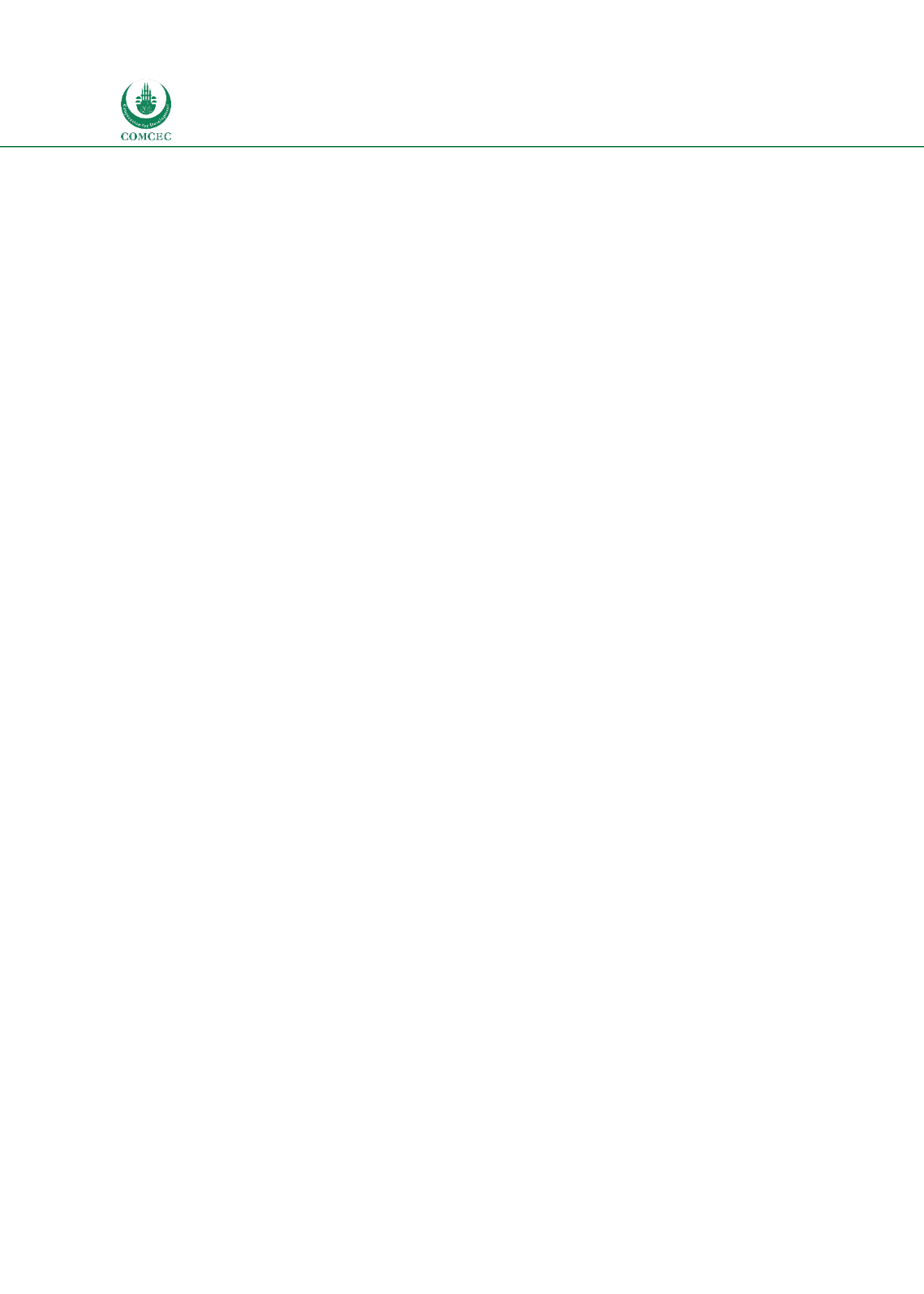

National and Global Islamic Financial Architecture:
Problems and Possible Solutions for the OIC Member Countries
100
internal and external. The internal sources consist of contributions (premiums) collected from
the Islamic financial institutions (IFIs) and investment income from the Non-Interest Deposit
Insurance Funds (NIDIF). The external sources consist of borrowing from the
Government/CBN interest-free, and if it is interest based then it must be under extreme
circumstances of necessity with funds raised from the Non-Interest Capital Markets (
sukuk
)
and with special contributions, if the need arises, from insured Islamic financial institutions.
The funds are segregated from the funds of the conventional deposit insurance.
The non-interest deposit insurance covers the following non-interest deposits: safe keeping
deposit (
wadi’ah
), interest free deposit for investment (
qard
), profit sharing/loss bearing
deposit (
mudarabah
), profit and loss sharing deposit (
musharakah
), and any non-interest
deposit type that may be approved by the CBN from time to time. However, insider deposits,
counter claims and interbank takings/borrowings are not covered by the scheme.
4.5.7. Human Capital & Knowledge Development Framework
The main challenge facing Islamic finance in Nigeria is the lack of adequate manpower. This
challenge is evident at different levels ranging from the regulatory bodies, Islamic financial
institutions, law firms, audit firms, etc. The regulatory bodies also have very few staff that
possess the requisite qualifications/knowledge of Islamic finance. At the institutional level, the
Bank Examiners have at various times identified the lack of adequate qualified personnel as a
major challenge for Islamic banks/banking windows.
However, despite the daunting manpower challenge, two prominent universities (Bayero and
Usman Danfodio) have vigorously embarked on Islamic economics/finance programmes at the
postgraduate level. Particularly, the International Institute of Islamic Banking and Finance of
Bayero University, established in 2011, which has as its mission as “extending the frontiers of
knowledge of Islamic Banking and Finance nationally and internationally with enthusiasm,
dedication and professionalism with a view to producing high quality human resources rich in
entrepreneurial skills for the development of mankind”, actively engages in professional and
postgraduate academic programmes and organizes annual international conferences on
Islamic finance as a way of promoting the knowledge of Islamic finance.
Additionally, there are some initiatives in the private sector aimed at promoting Islamic
finance in Nigeria. Metskills Limited, incorporated in 2009, offers advisory and consultancy
services on
zakah
, Islamic economics, Islamic banking and finance,
waqf
,
takaful
and
management strategies as well as collaborating with numerous local and international
partners to offer training and skills acquisition on Islamic finance.
The CBN, in collaboration with the IFSB, have consistently organized capacity building
workshops on IFSB standards in 2011, 2012, 2014 and 2016 for relevant stakeholders in the
Islamic finance industry. Enhanced Financial Innovation and Access (EFInA, 2009), facilitated
by the UK Islamic Finance Council (IFC), has established the Nigeria Islamic Finance Working
Group (NIFWG) for the purpose of providing capacity building to regulators and operators.
4.5.8. Summary and Conclusions
The status of the infrastructure for Islamic finance in Nigeria is shown in Chart 4.4. The Islamic
finance sub-sector is a new phenomenon on the Nigerian financial landscape and has high
















